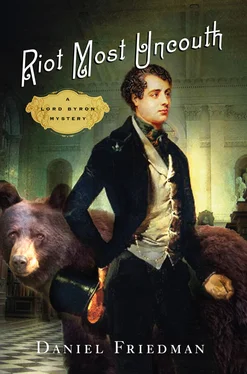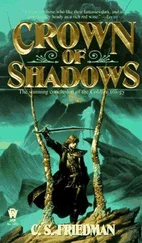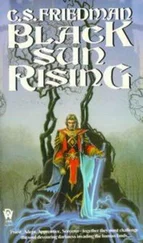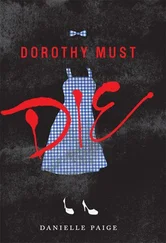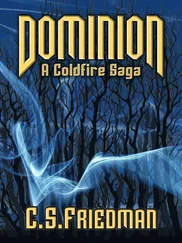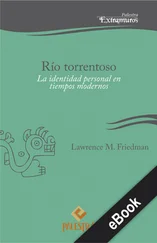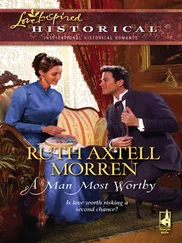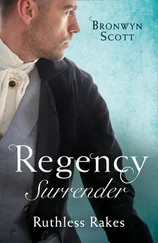Daniel Friedman - Riot Most Uncouth
Здесь есть возможность читать онлайн «Daniel Friedman - Riot Most Uncouth» весь текст электронной книги совершенно бесплатно (целиком полную версию без сокращений). В некоторых случаях можно слушать аудио, скачать через торрент в формате fb2 и присутствует краткое содержание. Год выпуска: 0101, ISBN: 0101, Издательство: St. Martin, Жанр: Исторический детектив, на английском языке. Описание произведения, (предисловие) а так же отзывы посетителей доступны на портале библиотеки ЛибКат.
- Название:Riot Most Uncouth
- Автор:
- Издательство:St. Martin
- Жанр:
- Год:0101
- ISBN:9781250027580
- Рейтинг книги:5 / 5. Голосов: 1
-
Избранное:Добавить в избранное
- Отзывы:
-
Ваша оценка:
- 100
- 1
- 2
- 3
- 4
- 5
Riot Most Uncouth: краткое содержание, описание и аннотация
Предлагаем к чтению аннотацию, описание, краткое содержание или предисловие (зависит от того, что написал сам автор книги «Riot Most Uncouth»). Если вы не нашли необходимую информацию о книге — напишите в комментариях, мы постараемся отыскать её.
Riot Most Uncouth — читать онлайн бесплатно полную книгу (весь текст) целиком
Ниже представлен текст книги, разбитый по страницам. Система сохранения места последней прочитанной страницы, позволяет с удобством читать онлайн бесплатно книгу «Riot Most Uncouth», без необходимости каждый раз заново искать на чём Вы остановились. Поставьте закладку, и сможете в любой момент перейти на страницу, на которой закончили чтение.
Интервал:
Закладка:
Daniel Friedman
Riot Most Uncouth
My time has lately been much occupied with very different pursuits. I have been … performing in private theatricals; publishing a volume of poems (at the request of my friends, for their perusal); making love, and taking the physic. The two last amusements have not had the best effect in the world, for my attentions have been divided amongst so many fair damsels and the drugs I swallow are of such variety in their composition, that between Venus and Aesculapius I am harassed to death.
-Lord Byron, from an 1807 letter to the Earl of ClareI would to Heaven that I were so much clay,
As I am blood, bone, marrow, passion, feeling-
Because at least the past were pass’d away-
And for the future-(but I write this reeling,
Having got drunk exceedingly to-day,
So that I seem to stand upon the ceiling)
I say-the future is a serious matter-
And so-for God’s sake-hock and soda-water!
-Lord Byron, fragment of a poem scrawled on the back of the manuscript of Don JuanChapter 1
Whilome in Albion’s isle there dwelt a youth,
Who ne in virtue’s ways did take delight;
But spent his days in riot most uncouth,
And vexed with mirth the drowsy ear of Night.
Ah, me! in sooth he was a shameless wight,
Sore given to revel and ungodly glee;
Few earthly things found favour in his sight
Save concubines and carnal companie,
And flaunting wassailers of high and low degree.
- Lord Byron, Childe Harold’s Pilgrimage, canto 1A poet must have a keen eye for details and for feelings; for subtext and for innuendo. This same set of skills is also essential if one hopes to have any success at the pursuit and capture of murderers. The 1807 publication of Hours of Idleness, my first collection of verses, cemented my reputation as the greatest poet ever to have lived. It therefore stood to reason that I also was the world’s greatest criminal investigator.
That autumn, I was bored with my studies at Trinity College and feeling quite restless. So I was intrigued and a little annoyed when my butler, Joe Murray, informed me as I enjoyed an otherwise-pleasant champagne breakfast that a young woman named Miss Felicity Whippleby had been butchered in her Cambridge rooms. She was said to have been a quiet and well-mannered girl, and nobody could fathom what she might have done to bring such a fate upon herself.
Murder was a rare thing in Cambridge, and mystery was unheard of. I had no doubt Felicity Whippleby’s name would soon be upon the lips of every local gossip and rumormonger, people whose time would have been better spent talking about me. I resolved to put my first-rate intellect to work capturing her killer. Such a diversion would burnish my notoriety and provide a good excuse to avoid attending classes. Anyway, Cambridge was large enough to support the misdeeds of only one villain. I would not be upstaged on my own territory by a knife-wielding interloper.
So, I roused my cohabitant, the Professor, from his hibernatory slumber, and after finishing off two bottles of Veuve Clicquot, we began canvassing the neighborhood, looking for the murderer. The air was crisp and fresh, and a stiff wind was blowing through the narrow streets, a welcome respite from the summer’s merciless heat. I would have found the weather invigorating, but I was animated that morning by something much more sinister than the apple-scented blush of early October in a leafy college town; I’d been awake for fifty hours, and I’d spent most of it drinking. I was, thus, in a state of near delirium. The Professor was better rested and had his wits about him, but grouchiness was intrinsic to his nature.
Our manhunt quickly turned up a suspect; as we wandered about near the scene of the murder, I noticed a shabby fellow staring at us with crazed, bulging eyes. My keen senses could not be fooled; something was out of place with this character.
“Do you have a problem?” I asked. He was taller than I, and broader through the shoulders, but I was younger and had become a skilled brawler during my years at boarding school. Still, if this confrontation devolved into fisticuffs, he might have been able to get the better of me, as I was not fully in command of my faculties. Fortunately, I was accompanied by the Professor, whose presence was sufficient to deter most evildoers.
“Perhaps it’s not my place to say,” said the suspicious man. His jacket was ill fitting and threadbare around the elbows. Unless he was the killer, he was nobody important.
“Perhaps it’s not,” I agreed.
“It’s just that there appears to be a rather large bear behind you.” He shrank away from the Professor.
I scowled at him. “Don’t you think I know that?”
He shuffled his feet and avoided meeting my accusatory gaze; a sign of guilt. Inconclusive, though. His behavior could merely indicate that he was intimidated by my estimable presence. Even if he didn’t know who I was, he must have known by observing my dress, which was only fashionably disheveled, and my carriage, which was just a little wobbly, that I was a quality sort. I was also uncommonly handsome, and my raw sexual magnetism had a tendency to frighten or confuse lesser men.
“I don’t mean to be impertinent, sir,” he said, his voice quavering. “But why is there a large bear behind you?”
“He’s shy,” I said. “He doesn’t like you.” I had little patience for the suspicious man’s hyperbole and histrionics. The Professor was of ordinary size for his genus. “I don’t like you much myself,” I added.
The man gurgled a little and tugged at his shirt collar. “I apologize, then, to the both of you. I’ll be going now.”
But I grabbed hold of his lapels to stop him. He had given himself away; for even a novice practitioner of the art of detection knows that murderers are terrified of bears.
“You’re not going anywhere,” I said. His clothes were stiff with filth and dried sweat, and when I shook him, I must have loosed the stink he held close to his body. It erupted forth, like a brown fog rolling off a rancid moor; a stench so powerful, it had a taste. I gagged and tried to hold my breath. I didn’t quite manage it, but I did hold on to the killer. I’d always wondered if evil had an odor. As the murderer’s filth laid siege to my poor nose, I knew it did.
The Professor growled and licked his paw, pleased with my display of prowess. He had the benefit of vast and subtle reasoning capacities as well as an ursine olfactory mechanism, a tool far more precise than the nose of a man. He must have long ago deduced that this miscreant slaughtered that poor girl.
“Why did you do it, you foul blackguard?” I wheezed. “Why did you kill her?”
The man’s eyes jerked around in their sockets, looking for a route of egress. But he was stuck between me and the bear, and there would be no escape. “I’ve got no idea what you’re talking about,” he said.
Less able explorers of the dark corners of the human heart might have been convinced by the killer’s display of confusion, but I didn’t believe him, and the Professor didn’t either. So I twisted the man’s stinky arm. Hard. Behind his back. He started to struggle, but the Professor growled again, and the man went limp. I drew the pistol I carried in my waistcoat and pressed it against my captive’s jaw, in case he had any ideas about resisting. Thus threatened, he became quite docile and allowed me to lead him back to the rooming house where the volunteer constable of Cambridge was guarding the murder scene.
The officer’s broad face swelled and reddened. “I still can’t let you examine Miss Whippleby’s room or the body, Lord Byron,” he said, smoothing his homemade uniform over the expanse of his belly. “I don’t care how important you think you are.”
Читать дальшеИнтервал:
Закладка:
Похожие книги на «Riot Most Uncouth»
Представляем Вашему вниманию похожие книги на «Riot Most Uncouth» списком для выбора. Мы отобрали схожую по названию и смыслу литературу в надежде предоставить читателям больше вариантов отыскать новые, интересные, ещё непрочитанные произведения.
Обсуждение, отзывы о книге «Riot Most Uncouth» и просто собственные мнения читателей. Оставьте ваши комментарии, напишите, что Вы думаете о произведении, его смысле или главных героях. Укажите что конкретно понравилось, а что нет, и почему Вы так считаете.
